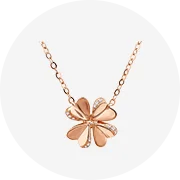
2-2.5mm Natural Potato Freshwater Pearls Tiny Pearl Beads Strands

Factory Direct Sale Latest African Lace High Class Nigerian Lace Fabrics For Wedding 2019 Lace Embroidered Stones And Beads 1470











Nigerian wedding beads are more than just adornments; they are a rich tapestry of culture and tradition woven into the celebrations of love and union. These beads, often seen in vibrant arrays at matrimonial ceremonies, are not only accessories but also significant symbols of status and elegance in Nigerian culture.
The Nigerian traditional wedding beads come in various forms, each with its own story and significance. Yoruba traditional wedding beads are known for their intricate patterns and royal connotations, often in shades of coral and ivory. The Igbo traditional wedding beads, on the other hand, are bold and colorful, reflecting the vibrant ethos of Igbo culture. Edo traditional wedding beads are typically crafted with deep coral hues, symbolizing fertility and prosperity. Each type serves as a testament to the wearer's heritage and personal journey.
The materials used in creating Nigerian wedding coral beads are as diverse as the cultures they represent. From the lustrous depths of coral to the polished sheen of ivory, these materials are carefully selected for their beauty and durability. Artisans who specialize in Nigerian traditional wedding coral beads employ age-old techniques to shape and polish each bead, ensuring that every set is a work of art.
While primarily associated with weddings, Nigerian wedding beads are also worn at other significant events, such as chieftaincy coronations and festivals. The coral beads for traditional wedding are not just limited to neckpieces; they extend to bracelets, earrings, and even headpieces, allowing for a coordinated look that is both regal and celebratory.
Selecting the perfect set of beads for an occasion as special as a wedding is a thoughtful process. Prospective couples might consider Igbo wedding beads for their bold statement or the subtler Yoruba wedding beads for a touch of elegance. The choice of beads can reflect the couple's personal style, cultural background, and the theme of their wedding.
In conclusion, Nigerian wedding beads are not merely accessories but are emblematic of the country's rich cultural mosaic. They carry with them the history and pride of Nigerian traditions, making them a cherished part of any celebration. While exploring the vast selection available, one can appreciate the craftsmanship and cultural narratives embedded in each piece.